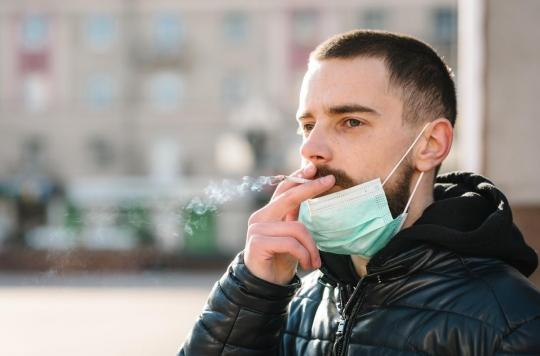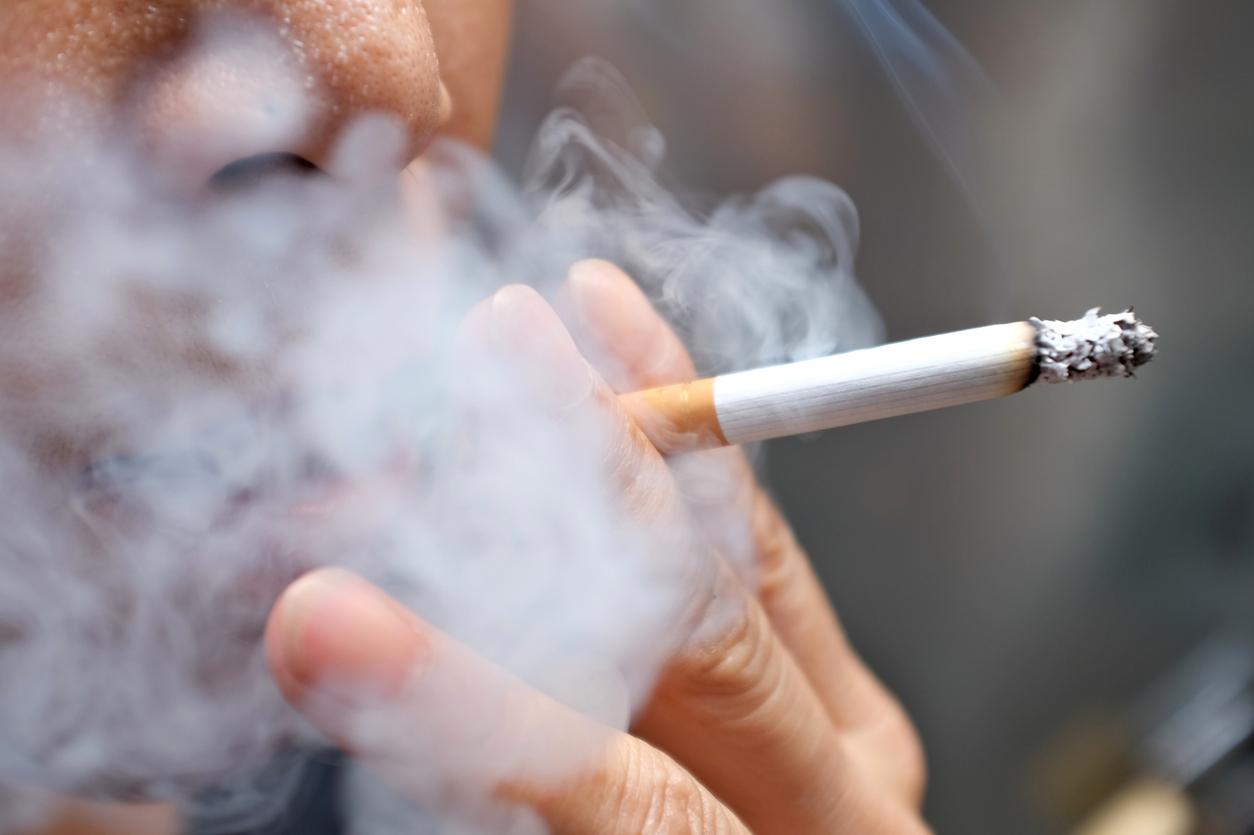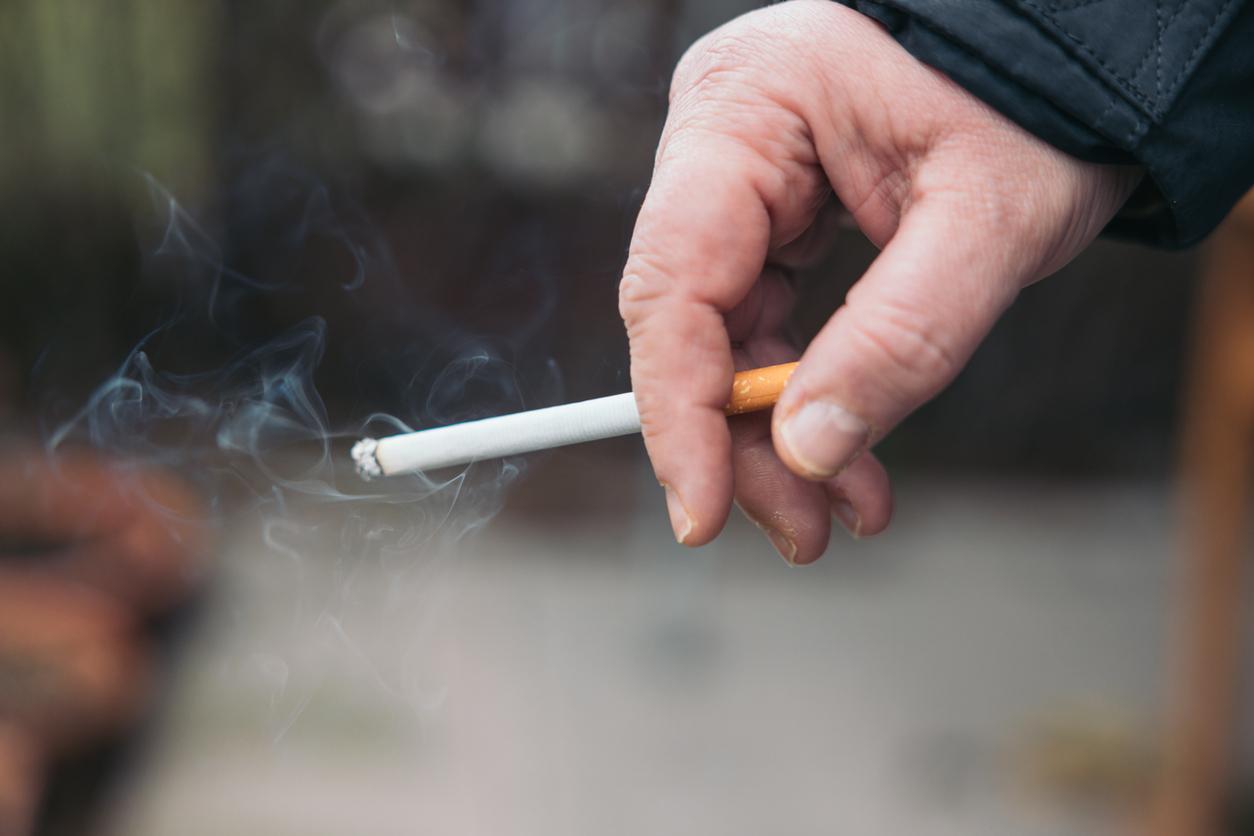In less than a year, knowledge has progressed, but there are still gaps in understanding the interaction between tobacco and Covid-19. Pulmonologists take stock.

- There is a statistical link between being an active daily smoker and the risk of contracting the coronavirus (estimated between 2 and 10 times less).
- “There would exist alongside the harmful effect of tobacco on the respiratory tract, a specific paradoxical beneficial effect of nicotine which needs to be demonstrated”.
Since the start of the pandemic, many observations, sometimes contradictory, have been relayed concerning Covid-19 and smoking. On the occasion of 25th French Language Pneumology Congresspulmonologists take stock of this interaction.
The certainties
Tobacco killed 75,000 French people in 2020, Covid-19 68,000. There is a statistical link between being an active daily smoker and the risk of contracting the coronavirus: those who smoke would have between 2 and 10 times less risk of developing the disease, according to estimates reported across dozens of studies. “Only one study, of poor quality with 98% missing data, is discordant”, say pulmonologists. Another certainty: the protective link between tobacco and Covid-19 does not exist in former smokers.
The near certainties
“The link between smoking and Covid-19 would be a causal link”, analyze health professionals.
Nicotine is the smoke agent most suspected of being “protective”, due to the presence of nicotinic receptors close to those of ACE2. In addition, data from a French study conducted by EPIPHAR show that people on nicotine substitutes are less victims of Covid-19 than those who do not receive them.
Discussion topics
Other data are debated in the scientific community, namely: the variations of the link between tobacco and covid-19 with new mutants remain totally unknown, but are important to evaluate, justifying a perfect collection of tobacco use in all patients Covid-19; in ex-smokers, there is an aggravation of the evolution of Covid-19 and the related flu in all the studies, suggesting the existence of identical long-term deleterious effects of smoking in these two pathologies; in long-time active smokers, studies report rather less worsening of Covid-19 than with the flu; in young active smoking sailors on the Charles de Gaulle aircraft carrier, most of whom have a fairly recent smoking habit (28 years of median age), the coronavirus is rather less serious in smokers who, if they are sick, have less cough and dyspnoea, fewer general signs and are significantly less often put on oxygen than non-smokers.
Professor Dautzenberg, pulmonologist, explains the discrepancies in studies on the severity of Covid-19 in smokers as follows: “alongside the harmful effect of tobacco on the respiratory tract, there would exist a specific paradoxical beneficial effect of nicotine which needs to be demonstrated. This protective effect only seems to attenuate the harmful effects observed for all viruses in former smokers, but in recent smokers, without damage to the respiratory tract, smoking can very paradoxically improve the evolution of covid-19. The explanation for this effect may be linked either to a lower penetration of viruses and a lower load viral, or to an effect on the regulation of intracellular inflammation under the effect of nicotine.”
Advice from pulmonologists
Given these uncertainties, pulmonologists now advise:
– to replace with nicotine all smokers suffering from Covid-19 who stop smoking during this disease (sudden cessation of nicotine could have deleterious effects);
– to study the effects of non-smoked nicotine in general;
– do not take nicotine if you are a non-smoker outside of these research protocols;
– above all, don’t forget that tobacco kills and will never be a solution to Covid-19!
“However, it remains to explain the preventive effect of smoking on the drop in the incidence of covid-19 and to confirm that it is indeed nicotine that is responsible”, conclude the pulmonologists.
.















